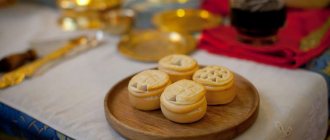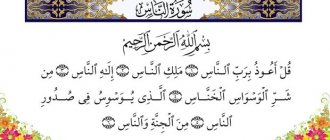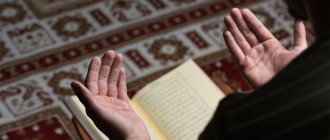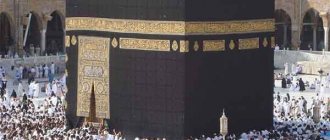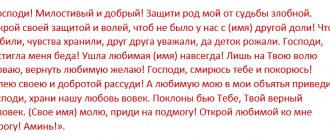Dua for the morning is a wonderful way for every Muslim to improve his worship by putting into practice the new knowledge he has acquired.
Each dua is meant for its own time - some of them are read immediately after waking up, and some - before eating, some of the suggested morning duas are read before going to the toilet, and some - after that. A Muslim must learn these prayers and read them every day in the morning.
The reward that a Muslim believer who reads dua and performs worship will receive will be great, because each of the periods of our life should be filled with worship of Allah Almighty, and He has determined the time of our life in which a believer should perform praise by saying prayers. This is how Allah blesses our time, and by worshiping and praising Allah, we deserve barakah from Allah.
In the morning, the Prophet (peace be upon him) used to say this remembrance
According to the Sunnah of the Prophet Muhammad ﷺ, there are special duas that must be performed in the morning. Performing them will help protect you from troubles and make the coming day a blessed one.
1) Intention (Niyat)
Before starting the prayer, the first thing you need to do is head towards the qiblah and mentally pronounce the niyat (intention). The intention is to avoid confusion and to specifically determine what kind of prayer is being performed.
The intention is made like this, for example, before the sunnah:
“I intend to pray two rak'ahs of the sunnah of morning prayer.".
And before the fard, respectively:
“I intend to perform two rak'ahs of the fard of the morning prayer."
(you can use your own words as you wish)
You need to read the verse “Al-Kursi” (Sura “The Cow”, verse 255). You should also read the following surahs three times: “Sincerity” (Ikhlas), “Dawn” (Falyak), “People” (Us)
وَبِكَ أَمْسَـينا ، وَبِكَ نَحْـيا وَ نَمـوتُ وَإِلَـيْكَ النِّـشور
“Asbakhna wa asbaha-l-mulku li-Llyahi (amsaina wa amsa-l-mulku li-Llyahi) (This is said in the evening.) wa-l-hamdu li-Llyahi, la ilaha illa Allahu wahda-hu la sharika la-hu , la-hu-l-mulku wa la-hu-l-hamdu wa hua oala kulli shayin kadirun. Rabbi, as'alu-kya hayra ma fi haza-l-yaumi wa hayra ma ba'da-hu wa a'uzu bi-kya min sharri ma fi haza-l-yaumi wa sharri ma ba'da-hu! (Rabbi as'alukya haira ma fi hazihi-l-laylati wa haira ma ba'adaha wa a'uzu bikya min sharri ma fi hazihi-l-laylati wa sharri ma ba'adaha) (What is in parentheses is read in the evening) Rabbi, a'uzu bi-kya min al-kasali wa sui-l-kibari, Rabbi, a'uzu bi-kya min 'azabin fi-n-nari wa 'azabin fi-l-kabri!)
أَمْسَيْـنا وَأَمْسـى المـلكُ لله وَالحَمدُ لله ، لا إلهَ إلاّ الل ّهُ وَحدَهُ لا شَريكَ لهُ، لهُ المُـلكُ ولهُ الحَمْـد، وهُوَ على كلّ شَيءٍ قدير ، رَبِّ أسْـأَلُـكَ خَـيرَ ما في هـذهِ اللَّـيْلَةِ وَخَ All rights reserved All rights reserved. All rights reserved. ٍ في النّـارِ وَعَـذابٍ في القَـبْر
Translation: We have lived until the morning, and this morning dominion belongs to Allah (An-Nawawi’s comments indicate that these words explain the state of the person uttering them, who is convinced that this morning dominion belongs to Allah, as it always belongs to Him.) (we have reached the evening, and this evening the sovereignty belongs to Allah) (This is read in the evening.) and praise be to Allah, there is no god but Allah alone, who has no partner. To Him belongs the dominion, to Him be the praise, He can do everything. My Lord, I ask You for the good that will happen on this day and the good that will follow it, and I seek refuge in You from the evil that will happen on this day and the evil that will follow it (My Lord, I ask You for the good that will happen on this night, and the good of what will follow it, and I resort to You from the evil that will happen on this night, and the evil that will follow it) (This is read in the evening.) My Lord, I come running to You from negligence and senile decrepitude, My Lord, I come running to You from torment in the fire and torment in the grave!
“Allahumma, bi-kya asbakhna, wa bi-kya amsayna, wa bi-kya nahya, wa bi-kya namu-tu wa ilyay-kya-n-nushuru” (This is read in the morning). “Allahumma, bi-kya amsayna, wa bi-kya asbakhna, wa bi-kya nahya, wa bi-kya namutu wa ilyay-kya-l-masyru” (This is read in the evening). (In the morning) النِّـشور
(In the evening) ، وَبِكَ نَمـوتُ وَإِلَـيْكَ المَصـير
Translation: O Allah, thanks to You we lived until the morning and thanks to You we lived until the evening, You give us life, and You deprive us of it, and You will resurrect us for an account. O Allah, thanks to You we lived until the evening and thanks to You we lived until the morning. You give us life, and You deprive us of it, and You raise us up for an account.
“Allahumma, Anta Rabbi, la ilaha illa Anta, halyakta-ni wa ana 'abdu-kya, wa ana 'ala 'ahdi-kya wa wa'di-kya ma-stata'tu. A'uzu bi-kya min sharri ma sana'tu, abu'u la-kya bi-ni'mati-kya 'alaiya, wa abu'u bi-zanbi, fa-gfir li, fa-inna-hu la yagfi- ru-z-zunuba illya anta!” All rights reserved. عَبْـدُك ، وَأَنا عَلـى عَهْـدِكَ وَوَعْـدِكَ ما اسْتَـطَعْـت ، أَع ـوذُبِكَ مِنْ شَـرِّ ما صَنَـعْت ، أَبـوءُ لَـكَ بِنِعْـمَتِـكَ عَل َـيَّ وَأَبـوءُ بِذَنْـبي فَاغْفـِرْ لي فَإِنَّـهُ لا يَغْـفِرُ ُّنـوبَ إِلاّ أَنْتَ
Translation: O Allah, You are my Lord, and there is no god but You, You created me, and I am Your slave, and I will remain faithful to You as long as I have enough strength. I resort to You from the evil of what I have done, I acknowledge the mercy You have shown me, and I admit my sin. Forgive me, for, truly, no one forgives sins except You!
“Allahumma, inni asbakhtu (inni amsaytu) ushhidu-kya wa ushhidu hamalata 'arshi-kya, wa malyaikyata-kya wa jami'a khalki-kya anna-kya Anta Allah la ilaha illya Anta wahda-kya la sharika la-kya, wa Anna Muhammadan 'abdu-kya wa rasulyu-kya.' اللّهُـمَّ إِنِّـي أَصْبَـحْتُ أَُشْـهِدُك ، وَأُشْـهِدُ حَمَلَـ All rights reserved. َ اللهُ لا إلهَ إلاّ أَنْـتَ وَحْـدَكَ لا شَريكَ لَـك ، وَأَنَّ َمُح (أربع مرات حينَ يصْبِح أوْ يمسي
Translation: O Allah, verily, this morning (this evening) I call upon You, and those who bear Your throne, and Your angels and all those whom You have created, to testify that You are Allah, and there is no god but one You, and You have no partner, and that Muhammad is Your servant and Your messenger. (These words should be repeated four times. Whoever does this in the morning or evening, Allah will deliver from the fire).
“Allahumma, ma asbaha (ma amsa) bi min ni'matin au bi-ahadin min hal-ky-kya fa-min-kya wahda-kya la sharika la-kya, fa-la-kya-l-hamdu wa la- kya-sh-shukru!” اللّهُـمَّ ما أَصْبَـَحَ بي مِـنْ نِعْـمَةٍ أَو بِأَحَـدٍ مِـنْ خَ لْـقِك ، فَمِـنْكَ وَحْـدَكَ لا شريكَ لَـك ، فَلَـكَ الْحَمْـدُ وَل َـكَ الشُّكْـر
Translation: O Allah, the favors shown this morning (evening) to me or to any other of Your creatures come only from You, and You have no partner! Praise be to You and gratitude to You! . “Allahumma, 'afi-ni fi badani, Allahumma, 'afi-ni fi sam'i, Allahumma, 'afi-ni fi basari, la ilaha illa Anta! Allahumma, inni a'uzu bi-kya min al-kufri wa-l-fakri wa a'uzu bi-kya min 'azabi-l-kabri, la ilaha illya Anta! اللّهُـمَّ عافِـني في بَدَنـي ، اللّهُـمَّ عافِـني في سَمْـعي ، ال لّهُـمَّ عافِـني في بَصَـري ، لا إلهَ إلاّ اللّه أَنْـتَ . اللّهُـمَّ إِنّـي أَعـوذُبِكَ مِنَ الْكُـفر ، وَالفَـقْر ، وَأَعـ القَـبْر ، لا إلهَ إلاّ أَنْـتَ
Translation: O Allah, heal my body, O Allah, heal my hearing, O Allah, heal my sight, there is no god but You! O Allah, verily, I resort to You from unbelief and from poverty, and I resort to You from the torment of the grave, there is no god but You! (These words should be said three times.)
“Hasbiya-Llahu, la ilaha illya hua, 'alay-hi tawakkyaltu wa hua Rabbu-l-'arshi-l-'azimi." () ُّ العَرْشِ العَظـيم (سبع
Translation: Allah is enough for me, there is no god but Him, in Him I trust and He is the Lord of the great throne. (These words should be said seven times.)
“Allahumma, inni as'alyu-kya-l-'afua wa-l-'afiyata fi-d-dunya wa-l-akhirati, Allahumma, inni as'alyu-kya-l-'afua wa-l-'afiyata fi dini, wa du-nyaya, wa ahli, wa mali. Allahumma-stur 'auratiy va-emin rau'atiy, Allahumma-hfaz-ni min bayni yadayya, wa min halfi, wa 'an yamini, wa 'an shimali wa min fauki, wa a'uzu bi-'azamati-kya an ugtala min takhti! All rights reserved. ْـيا وَالآخِـرَة ، اللّهُـمَّ إِنِّـي أسْـأَلُـكَ العَـفْوَ وَالعـ افِـيةَ في ديني وَدُنْـيايَ وَأهْـلي وَمالـي ، اللّهُـمَّ اسْتُـرْ All rights reserved. يَّ وَمِن خَلْفـي وَعَن يَمـيني وَعَن شِمـالي ، وَمِن فَوْقـي ، وَأَ All rights reserved.
Translation: O Allah, verily, I ask You for forgiveness and prosperity in this world and in the next world, O Allah, verily, I ask You for forgiveness and prosperity in my religion, and my worldly affairs, in my family and in my property . O Allah, cover my nakedness and protect me from fear, O Allah, protect me in front, and behind, and on the right, and on the left, and above, and I resort to Your greatness from being treacherously killed from below!
“Allahumma, 'Alima-l-gaibi wa-sh-shahadati, Fatira-s-samavati wa-l-ardi, Rabba buy shayin wa Malika-hu, ashhadu alla ilaha illya Anta, a'uzu bi-kya min sharri nafsi, wa min sharri-sh-shaitani wa shirki-hi wa an aktarifa 'ala nafsi su'an au ajurra-hu ila musli-min." اللّهُـمَّ عالِـمَ الغَـيْبِ وَالشّـهادَةِ السّماواتِ وَ All rights reserved. All rights reserved. ِ وَشِـرْكِه ، وَأَنْ أَقْتَـرِفَ عَلـى نَفْسـي سوءاً أَوْ أَجُـرَّ هُ إِلـى مُسْـلِم
Translation: O Allah, Knower of the hidden and the manifest, the Creator of the heavens and the earth, the Lord and Ruler of everything, I testify that there is no god but You, I take refuge in You from the evil of my soul, from the evil and polytheism of the shaitan and from causing evil to myself himself or bring it on some Muslim.
"Bi-smi-Llyahi alyazi la yadurru ma'a ismi-hi shayun fi-l-ardi wa la fi-s-samai wa hua-s-Sami'u-l-'Alimu." - السّمـاءِ السّمـيعُ العَلـيم .
Translation: In the name of Allah, in whose name nothing will cause harm either on earth or in heaven, for He is the Hearing, the Knowing!” (These words should be repeated three times. Nothing will harm the one who repeats them three times in the morning or evening.)
“Radiytu bi-Llahi Rabban, wa bi-l-Islami dinan wa bi-Muhammadin, sal-la-Llahu 'alay-hi wa sallama, nabiyan” نَبِيّـاً
Translation: I am pleased with Allah as Lord, Islam as a religion and Muhammad as a prophet! (These words should be repeated three times. On the Day of Resurrection, Allah will certainly show His favor towards those who do this in the morning and in the evening.)
“Ya Hayyu, ya Kayyumu, bi-rahmati-kya astagisu, aslih li sha’ni kulla-hu wa la taqil-ni ila nafsi tarfata ‘ainin!” يا حَـيُّ يا قَيّـومُ بِـرَحْمَـتِكِ أَسْتَـغـيث ، أَصْلِـحْ لي شَ All rights reserved
Translation: O Living One, O Ever-Existing One, I turn to Thy mercy for protection, put all my affairs in order and do not trust me with my soul even for a moment!
“Asbahna wa asbaha-l-mulku (Amsayna wa amsa-l-mulku) li-Llyahi, Rabbi l-'Alamina. Allahumma, inni as'alyu-kya haira haza-l-yaumi: fatha-hu, wa nasra-hu, wa nura-hu, wa barakyata-hu wa huda-hu, wa a'uzu bi-kya min sharri ma fi- hi wa sharri ma ba'da-hu. (Allahumma, inni as'alyu-kya haira hazihi-l-laylati: fatha-ha, wa nasra-ha, wa nura-ha, wa ba-rakata-ha wa khuda-ha, wa a'uzu bi-kya min sharri ma fi-ha wa sharri ma ba'da-ha)." أَصْبَـحْـنا وَأَصْبَـحْ المُـلكُ للهِ رَبِّ العـالَمـين ، اللّهُ ـمَّ إِنِّـي أسْـأَلُـكَ خَـيْرَ هـذا الـيَوْم ، فَـتْحَهُ ، وَنَصْ ـرَهُ ، وَنـورَهُ وَبَـرَكَتَـهُ ، وَهُـداهُ ، وَأَعـوذُ بِـكَ مِـن ْ شَـرِّ ما فـيهِ وَشَـرِّ ما بَعْـدَه / أَمْسَيْـنا وَأَمْسـى المُـ لكُ للهِ رَبِّ العـالَمـين ، اللّهُـمَّ إِنِّـي أسْـأَلُـكَ خَـَْرََ هـذهِ اللَّـيْلَة ، فَتْحَهـا ، وَنَصْـرَهـا ، وَنـورَهـا وَبَـرَكَتَـهـا ، وَهُـداهـا ، وَأَعـوذُ بِـكَ مِـنْ شَـرِّ ما فـيهـاِ وَشَـرِّ ما بَعْـدَهـا
Translation: We have reached the morning (evening), and this morning (evening) the sovereignty belongs to Allah, the Lord of the worlds. O Allah, verily, I ask You for the good of this day (this night): for help and victory, for light, blessing and guidance on this day (this night) and I resort to You from the evil of what will happen this day (this at night), and the evil of what will follow him (her). (The same should be said in the evening, replacing the words “morning” and “day” with “evening” and “night”, respectively).
“Asbakhna (amsayna) 'ala fitrati-l-Islami wa 'ala kalimati-l-ikhlasi wa 'ala dini nabiy-na Muhammadin, salla Allahu 'alai-hi wa sallama, wa 'ala mill-lati abi-na Ibrahima Hanifan Muslim wa ma kyana min al-mushrikina.” أَصْـبَحْنا[أَمْسَـينا] علـى فِطْـرَةِ الإسْلام ، وَعَلـى كَلِـمَ ةِ الإخْـلاص ، وَعلـى دينِ نَبِـيِّنا مُحَـمَّدٍ وَعَاـى مِلَّـةِ أ مُسْلِـماً وَمـا كـانَ مِنَ المُشـرِكي ـن
Translation: We lived until the morning (evening) in the bosom of Islam according to the word of sincerity, professing the religion of our prophet Muhammad, sallallahu 'alayhi wa sallam, and the religion of our father Ibrahim, who was a Hanif and a Muslim and was not a polytheist.
“Subhana-Llahi wa bi-hamdi-hi!” سُبْحـانَ اللهِ وَبِحَمْـدِهِ . مائة مرة
Translation: Glory to Allah and praise be to Him (If a person repeats these words a hundred times in the morning and in the evening, then on the Day of Resurrection only the one who repeated them the same number or more can bring with him something more worthy).
La ilaha illa-Llahu wahda-hu la sharika la-hu, la-hu-l-mulku wa la-hu-l-hamdu wa hua 'ala buy shayin kadir." All rights reserved َمْـد، وهُوَ على كُلّ شَيءٍ قَدير
Translation: There is no god but Allah alone, who has no partner. Dominion belongs to Him. Praise be to him. He can do anything. (These words should be repeated ten times or said once in the case when a person is overcome by laziness). “La ilaha illa-Llahu wahda-hu la sharika la-hu, la-hu-l-mulku wa la-hu-l-hamdu wa hua 'ala buy shaiin qadi-run.” All rights reserved َمْـد، وهُوَ على كُلّ شَيءٍ قَدير . مائة مرة
Translation: “There is no god but Allah alone, who has no partner, to Him belongs sovereignty, to Him is praise, He can do everything.” (These words should be repeated a hundred times every morning. He who utters them a hundred times during the day is equal to the one who freed ten slaves, he the performance of a hundred good deeds will be recorded, and the records of his hundred bad deeds will be erased. These words will serve as protection from the shaitan throughout this day until the evening, and no one will be able to do anything more worthy, except for those who repeat them more times).
“Subhana-Llahi wa bi-hamdi-hi 'adada khalki-hi, wa rida nafsi-hi, wa zinata 'arshi-hi wa midada kalyamati-hi!” سُبْحـانَ اللهِ وَبِحَمْـدِهِ عَدَدَ خَلْـقِه ، وَرِضـا نَفْسِـه ، وَزِنَـةَ عَـرْشِـه ، وَمِـدادَ كَلِمـاتِـه
Translation: Glory to Allah and praise be to Him as many times as His creations exist, and as many times as He pleases, may the weight of these praises and praises be equal to the weight of His throne and may it take as much ink to write them as it takes to write them His words!
"Allahumma, inni as'alyu-kya 'ilman nafi'an, wa rizkan tayiban wa 'amalyan mutakabbalyan!"
Translation: O Allah, verily, I ask You for useful knowledge, a good destiny and such a deed that will be accepted! (This should be said in the morning.)
“Astagfiru-Llaha wa atubu ilyay-hi.” أَسْتَغْفِرُ اللَّهَ وَأَتُوبُ إِلَيْهِ
Translation: I ask forgiveness from Allah and offer my repentance to Him. (These words should be said a hundred times a day.) These words should be repeated three times every morning.
“A’uzu bi-kyalimati Llyahi-t-tammati min sharri ma halyaka.” . ثلاثاً إِذا أمسى
Translation: I take refuge in the perfect words of Allah from the evil of what He has created (These words should be recited three times in the evening. The one who does this will not be struck by a fever at night and he need not fear the bites of poisonous insects.)
"Allahumma, salli wa sallim 'ala nabiyi-na Muhammadin"
Translation: O Allah, bless our prophet Muhammad and salute him! (These words should be said ten times.) It is reported that the Messenger of Allah (PBUH) said: “Whoever offers ten prayers for me in the morning and in the evening, on the Day of Resurrection will be under my intercession.”
9) Second sajdah (prostration)
In prayer, prostration is always performed twice. We say the takbir again: “Allahu Akbar” and bow to the ground. The second bow is performed in the same way as the first, we also say 3 times:
“Subhana robbiyal-aʼla
Subhana robbiyal-aʼlya
Subhana robbiyal-aʼlya."
And with the takbir “Allahu Akbar” we rise to our feet, the next rak’ah of prayer begins.
Please note, after performing all these actions, one rakaat of prayer is completed and then proceeds as a repetition of previous actions (rakaat is like a set of certain actions of the worshiper)
How to memorize dua
If you think that learning such duas is too difficult, then there are several ways to make such memorization easier and more effective. No one will be able to remember them immediately after reading them once, but Muslims strive to remember duas in such a way that they can recite them from memory, and for this they use a number of methods.
You should not be lazy - prayers can be written down in a notebook or written out on a piece of paper. This sheet or notebook should be kept open near the bed, or you can put it on the bedside table. In this case, you will be able to read the dua as soon as you wake up, and their text will always be before your eyes.
A good way for such memorization is to make something like a memo, in which those duas that are recommended to be pronounced when the morning comes will be written down. If the dua should be said in the morning before meals, then you can write it down on a piece of paper and hang this piece of paper on the refrigerator. As soon as you go to the refrigerator in the morning to open it and take out the food, you will remember the need to say dua before eating. Another piece of paper with the text of the dua, pronounced after eating, can also be hung on the refrigerator, and when you go to the refrigerator again after breakfast to put food, you will see a reminder and remember that you should also say the dua after eating.
With the help of such simple methods, over time you will be able to learn all the duas, and it will no longer be difficult for you to read the duas in the morning, you will do it easily and with pleasure.
Recitation of dua should be regular; a Muslim should be consistent in his worship, doing it every day. Even if you don’t manage to learn them all at first and pronounce them from memory without errors, over time you will become able to pronounce them from memory easier and easier.
Brevity of Prayers
The importance of dua for the morning is spoken of in many hadiths. Sahih says that the Prophet Muhammad himself often addressed the Almighty with such short formulations, prayers that did not contain many words, but expressed the very essence of the request.
It is advisable to say these words in the morning. Reported in Sunan by Ibn Majah. Ar-Riyadh 1429/2008 - 925, sahih sunan ibn Majah 1-3, Talif Muhammad Nasir addin al-Albani. Ar-Riyadh, 1417/1997 - 762
Aisha's story is told about how one day Abu Bakr came to the Messenger of Allah ﷺ, and at that time Aisha was just praying. Abu Bakr was about to say something, but Aisha performed the prayer slowly, and the Prophet Muhammad ﷺ pointed out to her that she should turn to Allah with short prayers, but comprehensive ones - so that in a brief formulation she could express the most important idea of her prayer. At the end of the prayer, Aisha asked the Prophet Muhammad ﷺ which prayer was the shortest and most comprehensive, to which he replied that she should ask Allah for every good that comes early
or later it may come from those benefits that are known to the believer and unknown to him. In the same prayer, she should resort to the protection of Allah from any evil that may sooner or later happen, whether the believer knows it or not. One should also turn to Allah with a request for the good that the Messenger of the Almighty Muhammad ﷺ asked him for, to ask for Paradise and for those deeds or words that can bring the believer closer to Paradise. You should also ask the Almighty for protection from Hell, and from those actions and words that can bring you closer to Hell. She should also turn to Allah with a request that everything that Allah has determined for her be good.
This story of Aisha is confirmed in the hadiths of the imams of Ahmad, in “Sharh Mushkil al-Asar” by al-Tahawi, in “al-Adabul-mufrad” by al-Bukhari, and is also confirmed by ibn Majah and ibn Hibban.
Numerous hadiths report that the Prophet ﷺ often, turning his prayers to the Almighty in the morning, expressed a request to Allah to make his heart healthy. This is especially confirmed in the reliable hadith of Ahmad and an-Nasai. An-Nawawi explained that only through liberation from anger, hatred, stinginess and greed, the tendency to ridicule other people and arrogance, the desire to become famous and cunning, all these hidden human ailments, can righteousness of heart be achieved.
Traveler's dua
If a person is on the road in the morning, then just before dawn he should make a dua
“Yes, yes, no, no, no, no. رَبَّنـا صـاحِبْـنا وَأَفْـضِل عَلَيْـنا عائِذاً باللهِ مِنَ النّ ـار"
There are two translation options for this dua, since it is based on two different meanings of the verb “sami'a”. In the first translation, dua means an appeal by a Muslim to everyone who hears his words to testify that he gives praise to Allah for his wonderful trials sent down to the believer.
In the second version it is meant that the word “balya”, which in the first version is translated as “test”, can also mean “misfortune” and “trouble”. This is explained as the fact that if a person, during trials or troubles that may befall him during life, shows himself steadfastly and shows patience, then as a result this will turn out to be a benefit for him. In the second version of the translation of this dua, it means that the believer asks everyone who hears his prayer to convey to others that he gives a prayer to the Almighty for how wonderful his test was sent down on the believers, and turns to the Almighty with a request to show mercy to the believers and not leave them. It also contains words that believers resort to the protection of the Almighty from fire.
When not to do Fajr
Time is allotted for performing each obligatory prayer. If a Muslim reads namaz and the sun rises, the Hanafi madhhab considers Fajra invalid. In this case, we will have to re-read the prayer as a missed qaada. Muslim morning prayer is held at a specially designated time. It is worth remembering that there is a false dawn and a real one. The first comes early and has a vertical shape. Some compare it to a wolf's tail. It is formed as a result of the sun illuminating small particles of dust and other space objects located at the level of the ecliptic. It does not last long, so it disappears abruptly, and the sky again plunges into darkness. When real dawn comes, you can observe the appearance of a light horizontal stripe in the sky.
